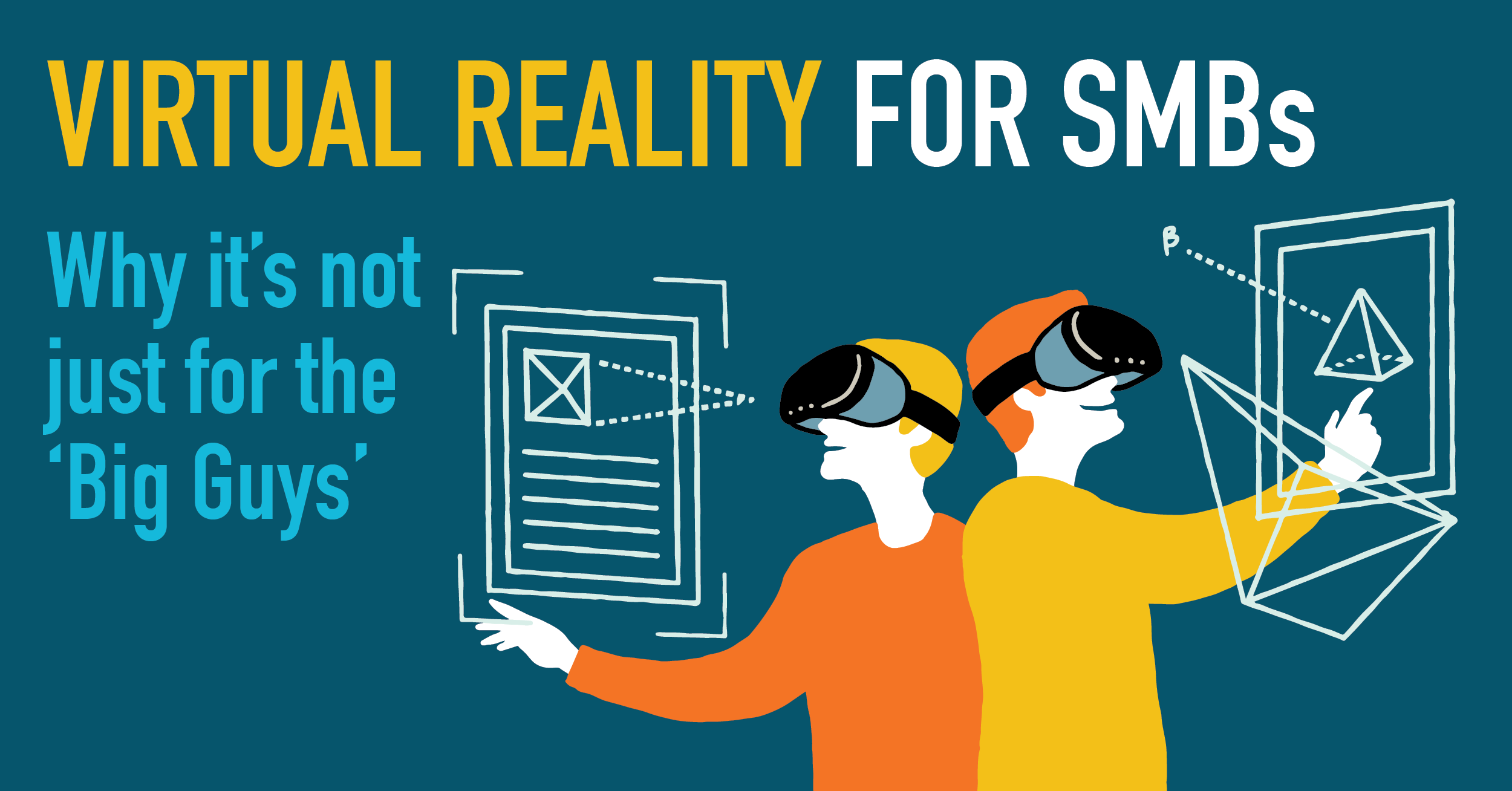Virtual Reality Startups for SMBs: Why it’s not just for the ‘big guys’

Virtual reality (VR) startups are expected to grow to a $120 billion industry by 2020. This includes technology and products for augmented reality (AR) and mixed reality (MR). With major players in tech invested in the hardware of VR (Google, Facebook, Samsung, HTC, to name a few), there’s been increased interest and funding from enterprises and the VC community to grow this industry through new entrepreneurial ventures. So you might be asking yourself: “That’s great, but why should I care?”
Well, let’s start with the use cases. While many individuals associate VR with gaming (its top money maker at the moment), there are many more industries that have started to adopt VR more recently. Here are just a few:
- Real estate: Agents can now help clients experience virtual open houses anywhere in the world.
- Tourism: Hotels and tourism companies can help consumers experience their top destinations virtually before making a purchasing
- Retail: Customers can now take a closer, 360-degree look at products without ever leaving their homes, enhancing the online experience.
- Medicine: Surgeons are adopting VR as a form of training to learn new procedures.
- Psychotherapy: Therapists have found success leveraging VR when treating certain anxiety disorders and PTSD.
- Education: Google’s headset, Google Cardboard, is being used across schools nationally to help students immerse themselves in classroom lessons.
As you can see, many different kinds of industries are seeing the value of these technologies. Virtual reality and augmented reality are ultimately about enhancing, easing, or even totally changing one’s personal experience. As a leader at a startup or small company who works directly with customers or prospects, VR presents an opportunity to enhance your customer’s buying journey, grow your team, and make your company’s story more powerful than ever.
Here are a few ways you should be thinking about leveraging VR for your own business:
- Sales
One of the most powerful ways to prove the value of your product or service to prospective clients is through demos. Walking someone through the factors that differentiate you from your competitors and the features that will ultimately save them time and money is key to driving more sales. But the problem with demos is that it’s hard to make them interesting and keep your prospects engaged for long periods of time because it’s a passive experience for them.
By leveraging a VR or AR technology, you can immerse your prospects into your product or service like never before, engaging their full attention, and facilitating interesting interactions. Not only will this experience help drive home key points you’re trying to make, but you’ve also created something memorable for that prospect, and that’s incredibly powerful to your brand.
- Marketing
Marketers are storytellers by nature. Whether it’s via news stories, eBooks, or videos, marketers always have something to say. Unfortunately, the internet has become a saturated place for marketing content, and a major challenge for marketers today is creating content that stands out from all of the noise online.
Creating content in VR is an excellent way to stand out from the crowd because it’s immersive and interactive, which is incredibly different from the passive consumption we’re familiar with today. In fact, top advertising agencies, like Digitas, have already started leveraging VR to create content for their clients. It’s only a matter of time before smaller firms adopt this as well.
A great way to showcase this new content is at events. What better way to entice people to your booth than by immersing them in either a demo or an interesting piece of thought leadership that you created in a virtual reality?
- Human Resources
At a small company, it’s more important than ever to hire new people or bring on new partners who can learn independently. Unfortunately, that’s easier said than done. The longer it takes for new hires to get up to speed, the more money your company loses in the process. It has already been found that virtual reality is a powerful tool for learning. Just as there’s value in creating demos in VR for prospective customers, by investing in the creation of interactive trainings for your product or service, you can start to eliminate the need for handholding, and ultimately have faster onboarding of new hires and channel partners.
Conclusion
VR and AR are fundamentally changing the way people experience and learn about the world. As these technologies become more widely adopted, prospects and new employees won’t be sitting on the sidelines anymore, passively consuming your content and listening to what you have to say. They’ll be in the game with you. And this is ultimately going to change the way business leaders think about customer acquisition, team-building, and growth.
Magnetude Consulting is a B2B full-service marketing agency that works with entrepreneurial ventures. We’ve helped our clients create a lot of firsts in their marketing. Whether you’re looking to get started with a basic video or you’re looking to explore something unique, talk to us, we can help. Contact us today.